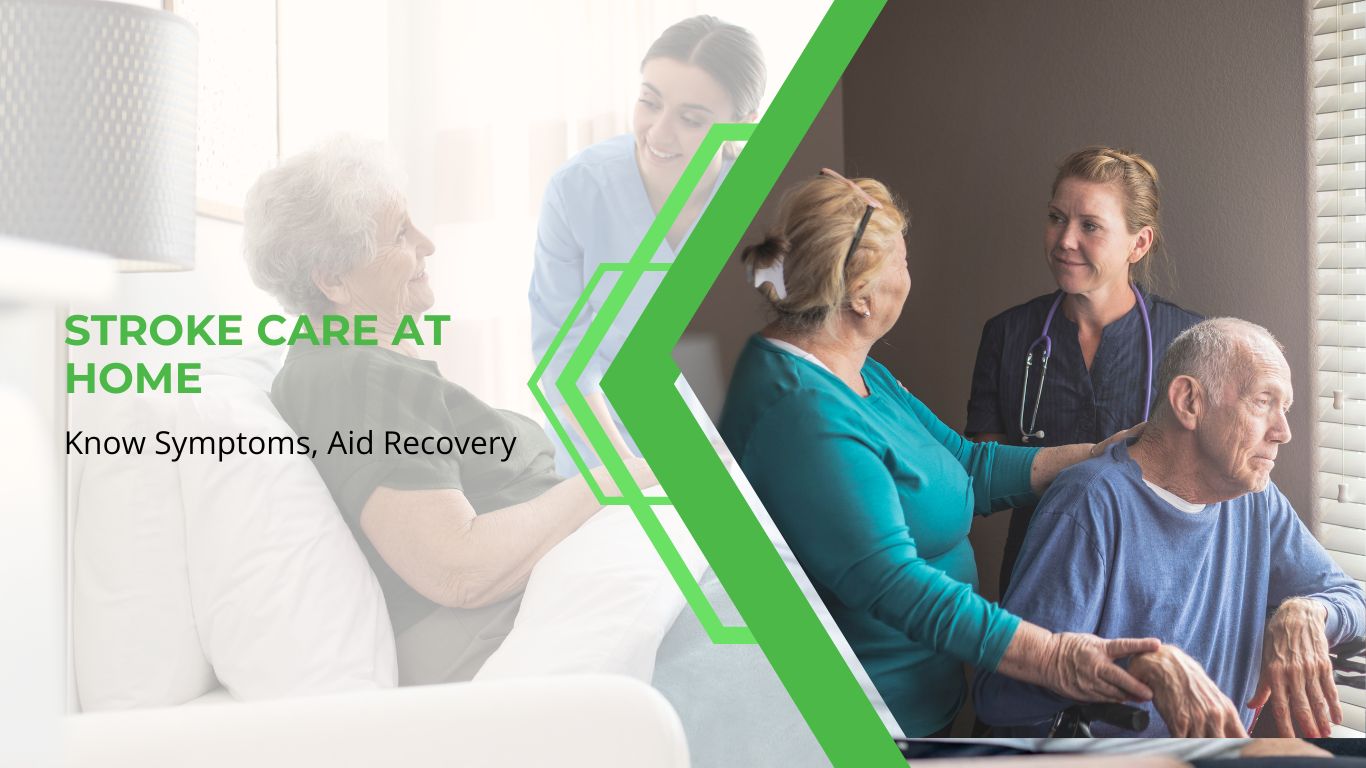Care seekers and their loved ones endure a great deal of difficulty when confronted with serious disease or nearing the end of life. It is critical to make informed decisions about the sort of treatment to get during these times. Palliative care vs hospice are two major options that many people must consider.
Do you know that since the turn of the millennium, the hospice industry has quadrupled in size? Each year, approximately 1.6 million people enter hospice care. To ensure care seekers get the best, most supportive care possible during these crucial times requires an understanding of the main distinctions and advantages of hospice care and palliative home care,
In order to make informed decisions for your loved ones, it is vital to understand the distinctions between palliative care and hospice care. Although they serve distinct purposes, their shared goal is to alleviate discomfort and give support.
Let get acquainted with the main differences, the pros and cons, and how to choose the best care for your family!
Understanding the Core Differences: Palliative Care Vs Hospice Care

Let’s discuss all the relevant details that differentiates the palliative care from hospice care!
What is Palliative Care?
Palliative care is a kind of specialist medical treatment that is provided to care seekers who are currently coping with a life-threatening condition, such as cancer or heart failure. Care seekers who are receiving palliative care may get medical therapy for their symptoms, often known as palliative care, in addition to treatment that is meant to eliminate their severe sickness.
What is Hospice Care?
Hospice care focuses on the comfort, quality of life, and care of a patient who is nearing the end of their life and is suffering from a severe disease. There is a possibility that a severe sickness will not be able to be cured at some point in time, or that a patient may decide not to undertake certain therapies. Hospice care emphasizes emotional, psychological, and spiritual support during the end-of-life stage.
Definition of Palliative Care
Palliative care is a subspecialty of oncology that aims to alleviate suffering from serious illnesses. As an added bonus, it helps ease the discomfort of medical treatment side effects.
Definition of Hospice Care
People who are seriously ill and have ceased receiving treatment for their illness are the focus of a specific program called HOS-pis.
Multiple Aspects of Palliative Care Vs Hospice Care
Let’s discuss deeply multiple aspects of Palliative vs Hospice Care!
| Palliative care | Hospice care |
| Timing of care: When to Choose Hospice Vs Palliative Care | |
| Patients and their families get palliative care with the aim of alleviating pain and maximizing quality of life. Some of the symptoms that may be experienced include discomfort, sadness, trouble breathing, exhaustion, constipation, nausea, lack of appetite, disturbed sleep, anxiety, and depression. | When all other options for treatment have been exhausted, hospice care may help care seekers through their last months by focusing on their comfort and quality of life. Care for the whole person—mental, emotional, and spiritual—is at the heart of this holistic method. |
| Primary Objective | |
| Palliative care focuses on alleviating symptoms and enhancing quality of life as a whole. Managing pain, easing bodily discomforts, and attending to mental and emotional needs are all part of this. | At the end of life, hospice care is all about making sure the patient is comfortable and treated with respect. With a focus on pain and symptom management without invasive therapies, the aim is to assist clients in making the most of their remaining time. |
| Settings: Where Each Type of Care Can Be Provided | |
| Home, inpatient clinics, and hospitals are some of the places where palliative care may be given. | Home, hospice facilities, or hospital wards with dedicated hospice care are just a few of the many possible locations for hospice care. |
| Treatments: Palliative Care Vs Hospice | |
| Palliative care involves curative treatments. It provides assistance to those receiving curative therapy. Treatment options for the condition may include chemotherapy, radiotherapy, or surgery, with the goal of addressing the disease and concurrently addressing symptoms such as pain, nausea, or exhaustion. | Hospice care involves non-curative focus and does not include therapeutic interventions aimed at curing the patient’s condition. Instead, it prioritizes the implementation of steps to provide comfort, manage symptoms, and offer emotional and spiritual assistance. |
| Eligibility | |
| Currently, palliative care is an option for patients with a wide variety of severe conditions, including cancer, cardiovascular disease, chronic lung disease, AIDS, Alzheimer’s, MS, ALS, and many more. | If a doctor determines that a patient’s life expectancy is six months or less when the serious disease takes its course, then the patient is eligible for hospice care |
Benefits of Each Type of Care
Benefits of Palliative Care at Home
Here are some benefits of palliative care at home!
- Palliative care helps manage symptoms and suffering for people with terminal cancer.
- People with Parkinson’s disease who receive palliative care have a better quality of life.
- Palliative care reduces the likelihood of depression.
- Palliative care may help people with advanced cancer live longer.
- Palliative care professionals support care seekers and families in making care and treatment decisions.
- Palliative care provides emotional support and educational advice to family caregivers.
- Palliative care improves satisfaction for both care seekers and caregivers.
Benefits of Hospice Care
- Some hospice care seekers experience health improvements and may temporarily stop hospice care.
- Seriously ill Care seekers receiving hospice care may live longer than those who don’t.
- Hospice care provides a sense of relief and control for care seekers.
- Regular visits from hospice staff help manage pain and symptoms, reducing emergency hospital visits.
- Being at home with family and friends can improve the patient’s quality of life.
- Emotional support from social workers or chaplains helps address emotional pain.
- Hospice care empowers Care seekers to control their final months.
- Caregivers receive physical and emotional support, allowing for quality time with loved ones.
Hospice Vs Palliative Care Chart
| Aspect | Palliative Care | Hospice Care |
| Timing | Any stage of serious illness | Final six months of life |
| Goals | Improve quality of life, symptom relief | Comfort, quality of life, end-of-life care |
| Settings | Home, hospitals, outpatient clinics | Home, hospice centers, specialized units |
| Treatments | Can include curative treatments | Non-curative, comfort-focused |
| Support | Emotional, practical, respite care | Holistic, family support, respite care |
| Collaboration | With healthcare professionals | With healthcare professionals |
Making the Right Choice: Hospice Vs Palliative Care

Deciding between palliative care and hospice care is an individual choice that should include the client, their family, and healthcare professionals. Gaining a comprehensive understanding of the differences and benefits of each kind of treatment will contribute to guaranteeing optimal assistance for the customer.
Below are few factors that should be taken into consideration:
- Client’s Prognosis: Palliative care is appropriate for clients who have a severe disease but are still actively seeking treatment. Hospice care is the most suitable option when the client has a terminal diagnosis and a life prognosis of six months or less.
- Objectives for Care: Ascertain if the objective is to persist with therapy and handle symptoms (palliative care) or to concentrate only on comfort and the overall quality of life during the last months (hospice care).
- Family Needs: Evaluate the extent of assistance required by the family. Both palliative and hospice care provide emotional and practical assistance to families, but hospice care often includes more comprehensive end-of-life support.
Comprehensive Palliative and Hospice Care with 24-hour support for Your Loved Ones
Both palliative care and hospice care provide vital assistance to those with severe diseases. Palliative care may be used at any point in time to enhance the overall quality of life, but hospice care specifically prioritizes providing comfort during the last few months of life. True Homecare provides extensive 24-hour support with palliative home care services and hospice care services, guaranteeing that clients get optimal care inside the comfort of their own homes. Although we are not partnered but work on the Ethical Framework by Stockport Council. We ensure personalized care, including waking nights, sleeping nights, and arranging outings for movies or walks in the park, all designed to meet the unique needs of our patients and their families.
To get more details on palliative and hospice care, or to engage in a conversation about the optimal care choices for your loved ones, please visit our True Homecare website or get in touch with us without delay. Allow us to assist you in delivering the empathetic and considerate care that your family is entitled to.
FAQs
- What services does True Homecare offer?
True Homecare provides diverse homecare services including respite, companionship, specialist care, dementia and Alzheimer’s support, stroke and Parkinson’s care, end-of-life assistance, disability support, reablement, waking and sleeping nights, and 24-hour live-in care. Our services extend to assisting Parkinson’s clients, ensuring they receive specialized care and attention.
- What makes True Homecare different from other care providers?
True Homecare, a small family-run organization, specializes in personalized care packages, offering individualized attention and tailored services to meet the unique needs and interests of each client, unlike larger conglomerates.
- Do you provide companionship services?
Yes, True Homecare offers comprehensive companionship services, assisting with outings or providing activities at home like reading, crafts, or chatting
- What areas do you serve?
True Homecare provides services in Stockport and Wilmslow.
- How do you ensure the quality of care?
Our carers are well-trained and experienced, and we collaborate with healthcare professionals to ensure our clients receive the appropriate care and support; True Homecare is a preferred provider of Stockport Council, on the Ethical Framework, and registered with the Care Quality Commission (CQC).
- How can I get a quote for your services?
To get an accurate quote, please email us with your requirements. We will arrange a call to discuss your specific needs and provide a detailed quote based on the services you require.


